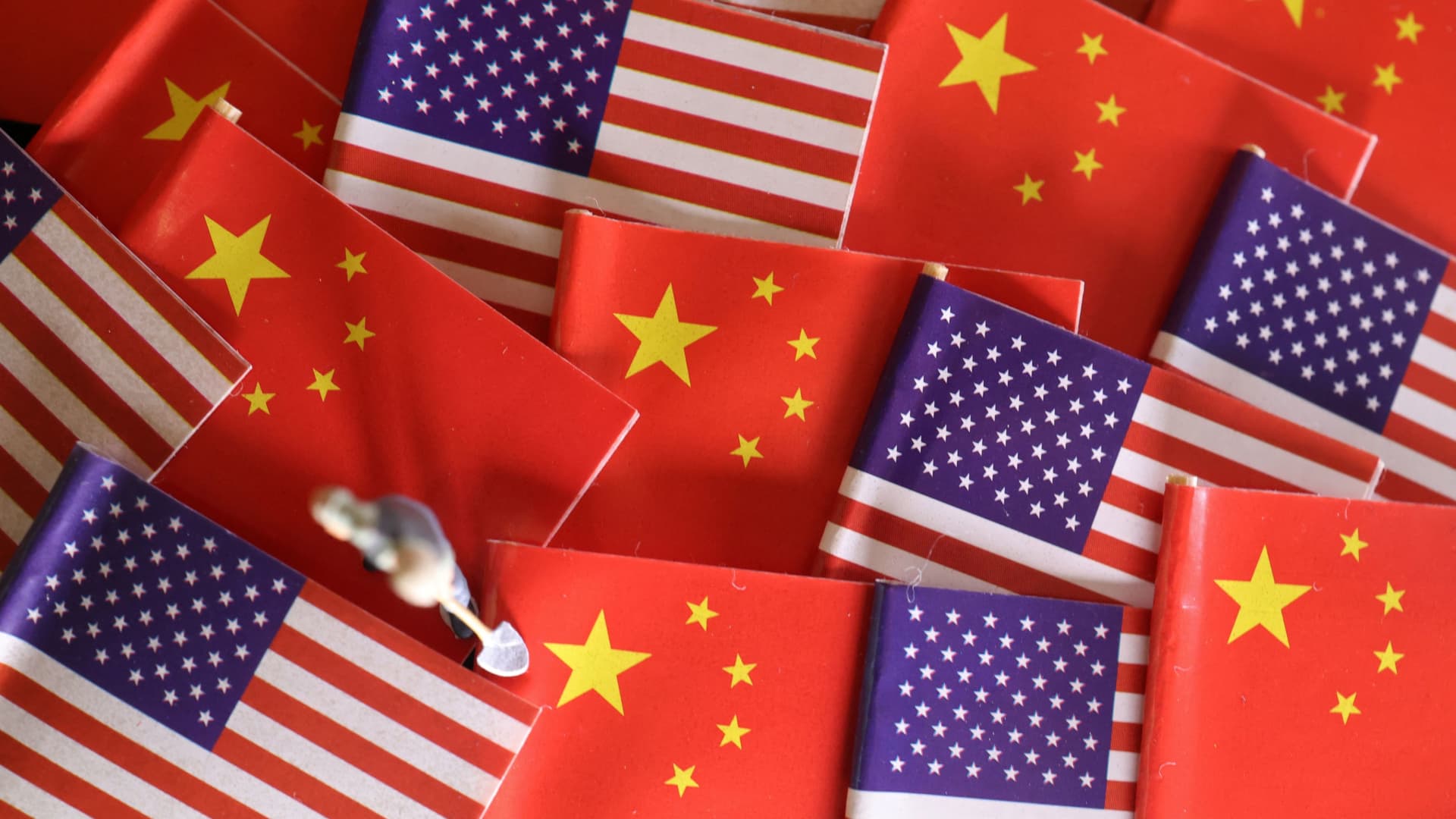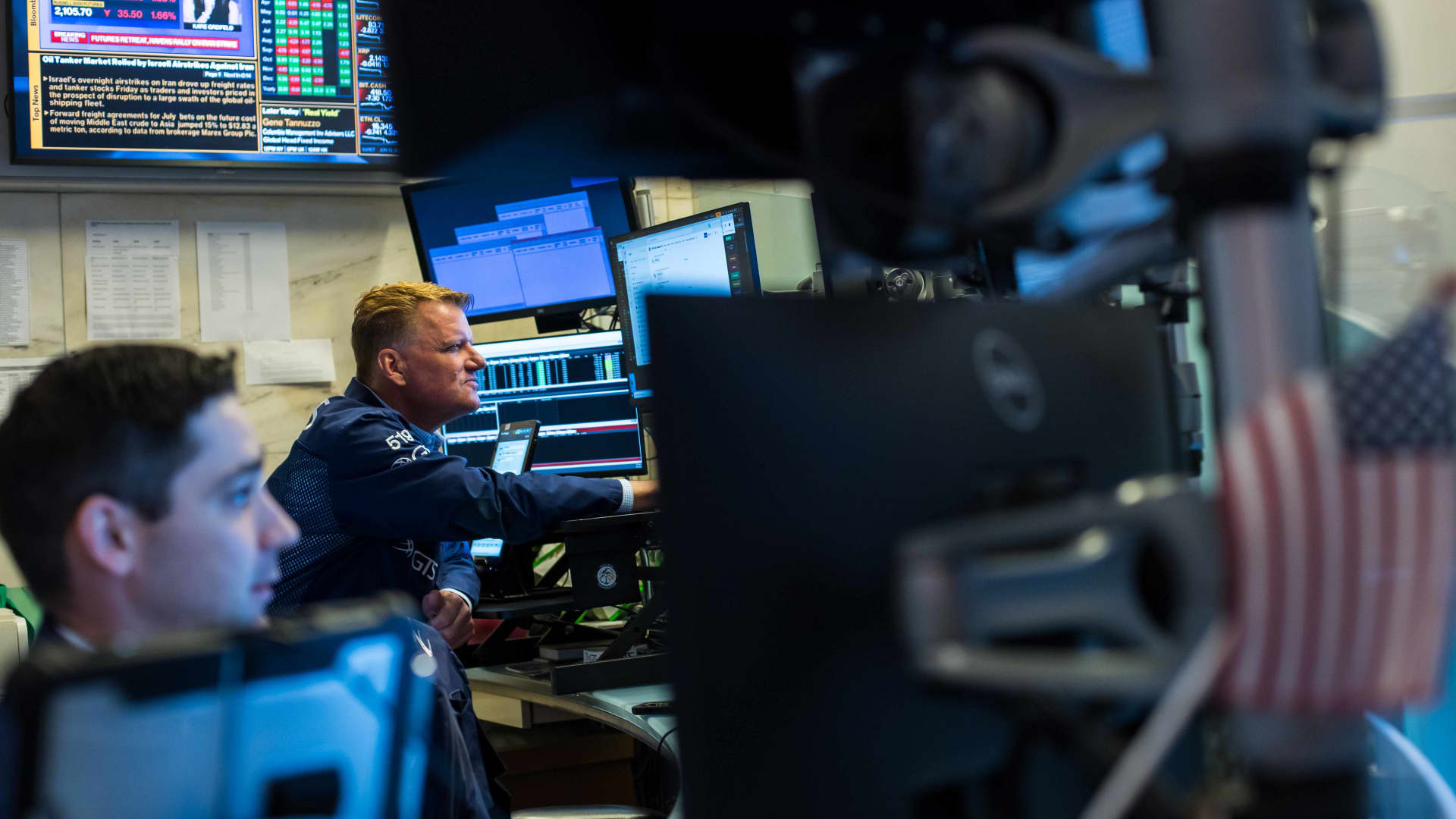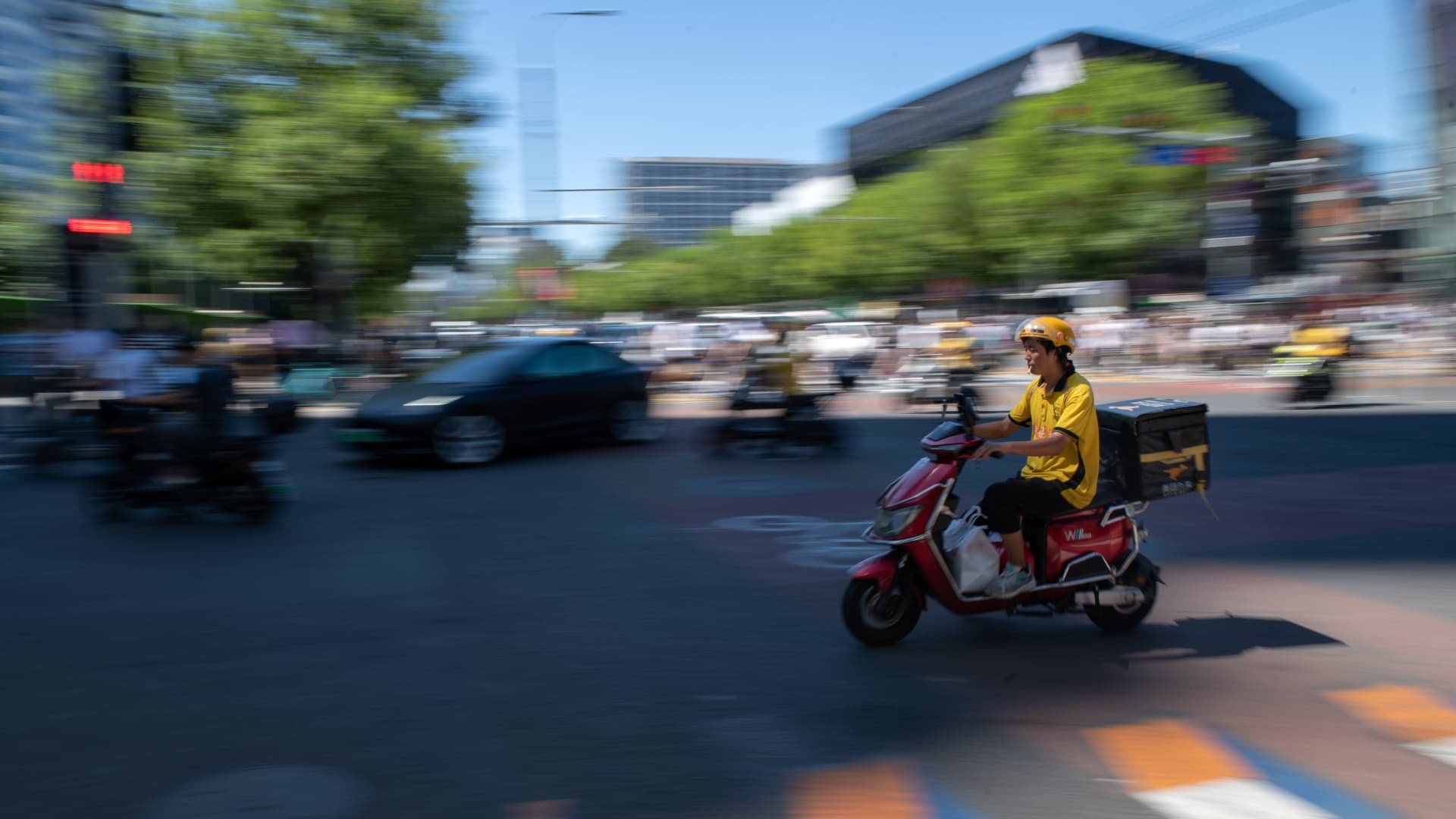Tensions between the world’s two largest economies have escalated over the last several years.
Florence Lo | Reuters
BEIJING — China is trying yet again to boost foreign investment, amid geopolitical tensions and businesses’ calls for more concrete actions.
On Feb. 19, authorities published a “2025 action plan for stabilizing foreign investment” to make it easier for foreign capital to invest in domestic telecommunication and biotechnology industries, according to a CNBC translation of the Chinese.
The document called for clearer standards in government procurement — a major issue for foreign businesses in China — and for the development of a plan to gradually allow foreign investment in the education and culture sectors.
“We are looking forward to see this implemented in a manner that delivers tangible benefits for our members,” Jens Eskelund, president of the European Union Chamber of Commerce in China, said in a statement Thursday.
The chamber pointed out that China has already mentioned plans to open up telecommunications, health care, education and culture to foreign investment. Greater clarity on public procurement requirements is a “notable positive,” the chamber said, noting that “if fully implemented,” it could benefit foreign companies that have invested heavily to localize their production in China.
China’s latest action plan was released around the same time the Commerce Ministry disclosed that foreign direct investment in January fell by 13.4% to 97.59 billion yuan ($13.46 billion). That was after FDI plunged by 27.1% in 2024 and dropped by 8% in 2023, after at least eight straight years of annual growth, according to official data available through Wind Information.
All regions should “ensure that all the measures are implemented in 2025, and effectively boost foreign investment confidence,” the plan said. The Ministry of Commerce and National Development and Reform Commission — the economic planning agency — jointly released the action plan through the government’s executive body, the State Council.
Officials from the Commerce Ministry emphasized in a press conference Thursday that the action plan would be implemented by the end of 2025, and that details on subsequent supportive measures would come soon.
“We appreciate the Chinese government’s recognition of the vital role foreign companies play in the economy,” Michael Hart, president of the American Chamber of Commerce in China, said in a statement. “We look forward to further discussions on the key challenges our members face and the steps needed to ensure a more level playing field for market access.”
AmCham China’s latest survey of members, released last month, found that a record share are considering or have started diversifying manufacturing or sourcing away from China. The prior year’s survey had found members were finding it harder to make money in China than before the Covid-19 pandemic.
Consumer spending in China has remained lackluster since the pandemic, with retail sales only growing by the low single digits in recent months. Tensions with the U.S. have meanwhile escalated as the White House has restricted Chinese access to advanced technology and levied tariffs on Chinese goods.
‘A very strong signal’
While many aspects of the action plan were publicly mentioned last year, some points — such as allowing foreign companies to buy local equity stakes using domestic loans — are relatively new, said Xiaojia Sun, Beijing-based partner at JunHe Law.
She also highlighted the plan’s call to support foreign investors’ ability to participate in mergers and acquisitions in China, and noted it potentially benefits overseas listings. Sun’s practice covers corporates, mergers and acquisitions and capital markets.
The bigger question remains China’s resolve to act on the plan.
“This action plan is a very strong signal,” Sun said in Mandarin, translated by CNBC. She said she expects Beijing to follow through with implementation, and noted that its release was similar to a rare, high-profile meeting earlier in the week of Chinese President Xi Jinping and entrepreneurs.
That gathering on Feb. 17 included Alibaba founder Jack Ma and DeepSeek’s Liang Wenfeng. In recent years, regulatory crackdowns and uncertainty about future growth had dampened business confidence and foreign investor sentiment.
China needs to strike a balance between tariff retaliation and stabilizing FDI, Citi analysts pointed out earlier this month.
“We believe China policymakers are likely cautious about targeting U.S. [multinationals] as a form of retaliation against U.S. tariffs,” the analysts said. “FDI comes into China, bringing technology and know-how, creating jobs, revenue and profit, and contributing to tax revenue.”
In a relatively rare acknowledgement, Chinese Commerce Ministry officials on Thursday noted the impact of geopolitical tensions on foreign investment, including some companies’ decision to diversify away from China. They also pointed out that foreign-invested firms contribute to nearly 7% of employment and around 14% of taxes in the country.
Previously, official commentary from the Commerce Ministry about any drop in FDI tended to focus only on how most foreign businesses remained optimistic about long-term prospects in China.

 Economics1 week ago
Economics1 week ago
 Economics1 week ago
Economics1 week ago
 Economics1 week ago
Economics1 week ago
 Finance1 week ago
Finance1 week ago
 Blog Post1 week ago
Blog Post1 week ago
 Economics1 week ago
Economics1 week ago
 Personal Finance1 week ago
Personal Finance1 week ago
 Economics1 week ago
Economics1 week ago












